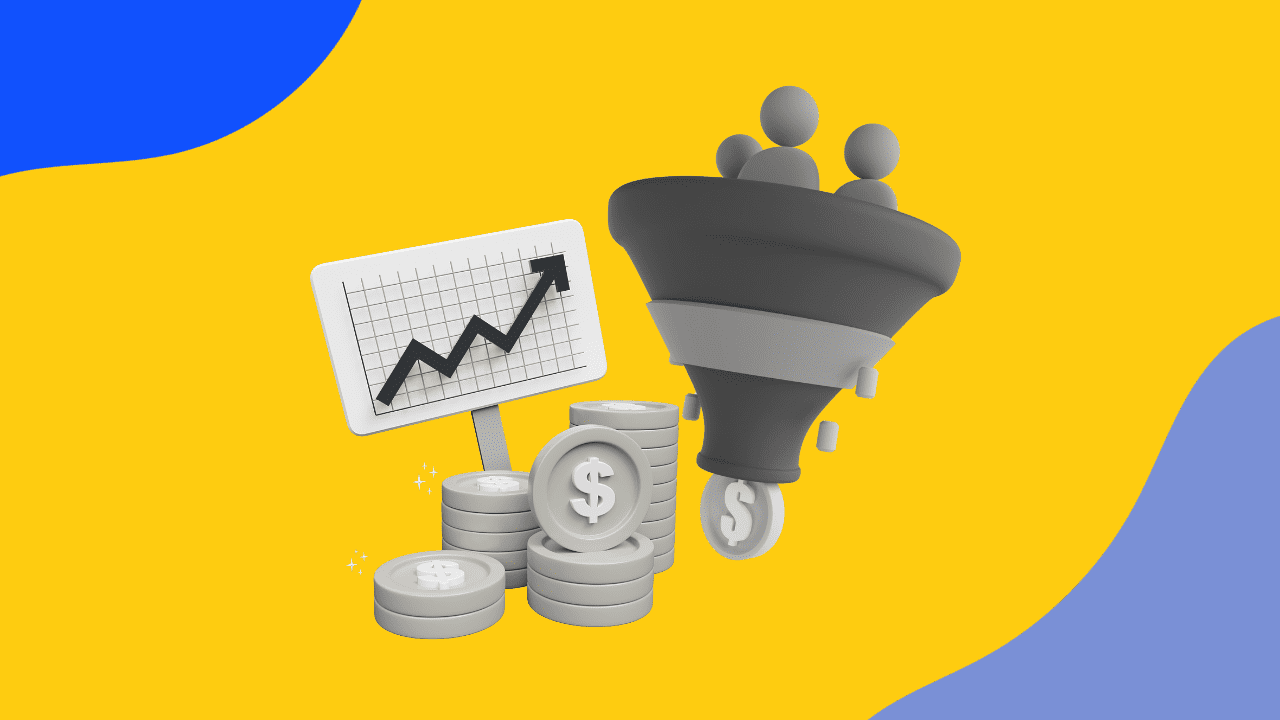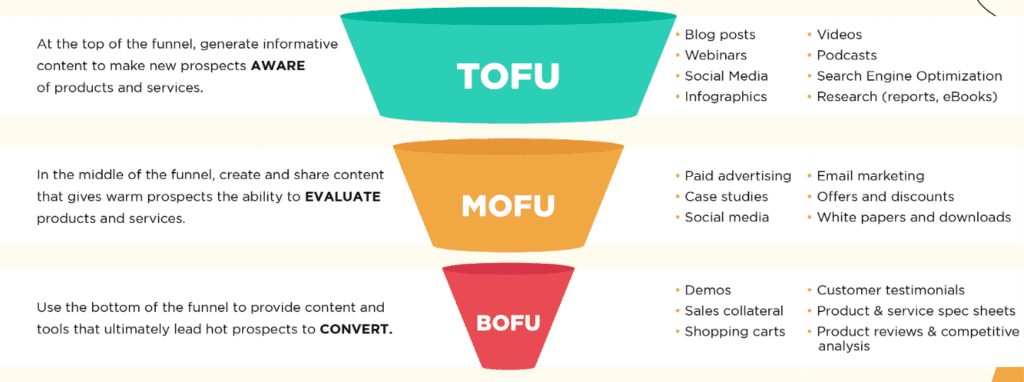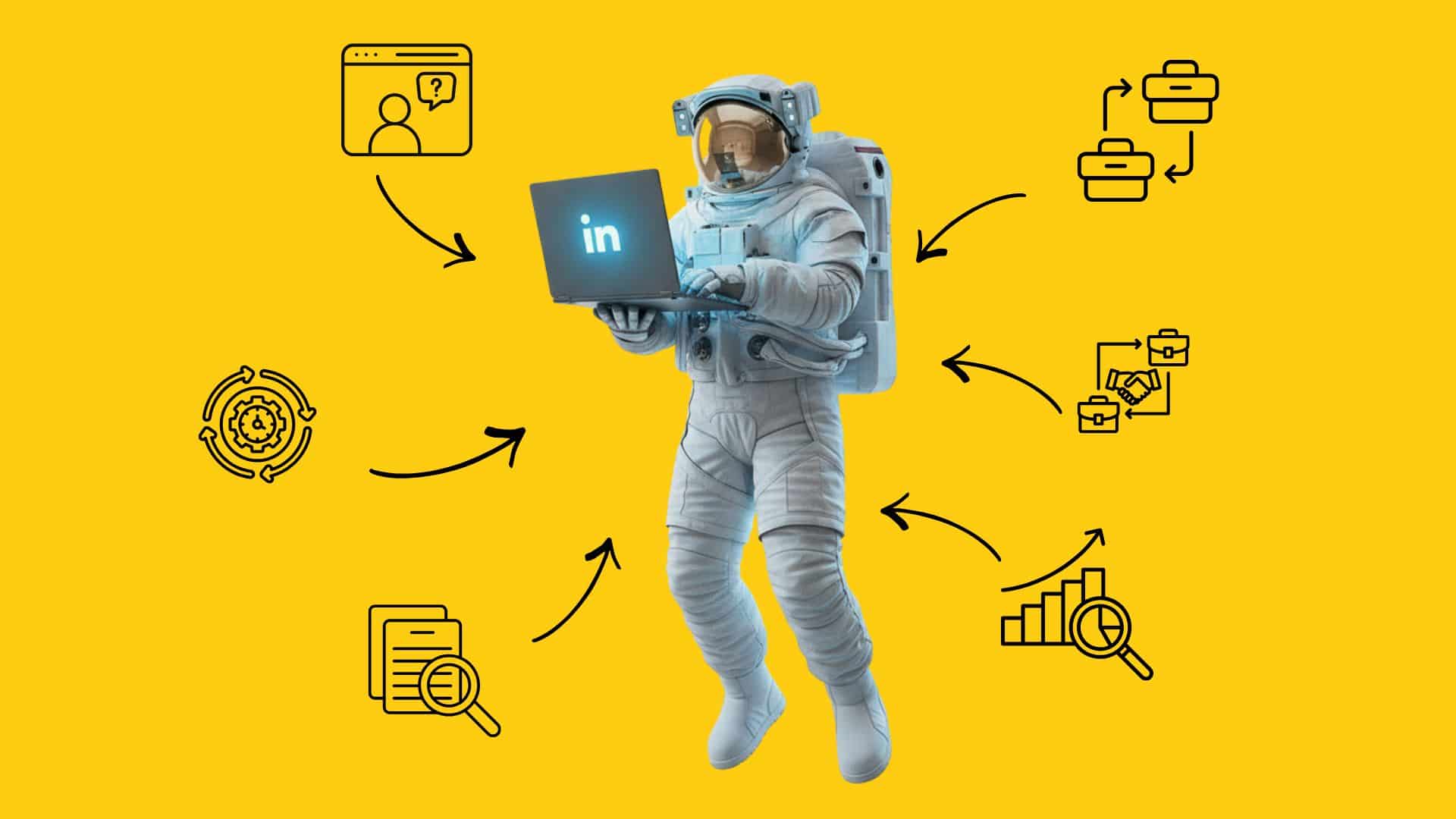
Recent articles
our mailing list
Mastering the Marketing Funnel for Small to Medium Businesses

What is a marketing funnel?
A marketing funnel is a model that maps the customer journey from awareness to conversion, helping SMBs refine strategy at every stage.
In today’s digital age, marketing for small to medium businesses (SMBs) can be both exciting and challenging. An indispensable tool for navigating this landscape is the marketing funnel. In this comprehensive guide, we’ll delve into the intricacies of marketing funnels and highlight their significance for SMBs. We’ll also explore the various stages of the funnel and provide practical insights into how SMBs can tailor their strategies for success.

Defining Marketing Funnels
Marketing funnels are a structured framework that maps the customer journey from initial awareness to the final conversion. They offer a visual representation of how prospects progress through different stages before becoming paying customers. By understanding this concept, SMBs can craft tailored marketing strategies to engage their audience effectively..
Importance for Small to Medium Businesses
SMBs often operate with limited resources, making efficient budget allocation crucial. Marketing funnels help minimise waste and maximise ROI. They ensure that every marketing effort contributes to the bottom line, making it an ideal approach for SMBs aiming to make the most of their resources.
The Stages of the Marketing Funnel
There are many variations of the marketing funnel, with some having as little as three core stages while others have six. For this article we will focus on the four central stages that are present in every marketing funnel variation as these are the most important ones. Once you’ve adapted to the basics you can alter your marketing funnel to have more stages if this suits your customer journey better. The central stages are:
- Awareness or Top of Funnel (TOFU): At this stage, potential customers are at the top of the marketing funnel. They have just become aware of a problem or a need but may not be fully aware of your brand or the solutions you offer.
- Consideration or Middle of Funnel (MOFU): Here, the focus shifts to building relationships and trust with potential customers. They are considering various solutions to their problem, including your products or services. Your marketing efforts in the MOFU stage should provide more in-depth information and content that showcases your brand’s expertise and the benefits of your offerings.
- Decision or Bottom of Funnel (BOFU): At the bottom of the funnel, prospects are ready to make a decision. They are actively evaluating your products or services and comparing them to alternatives.
Key Metrics to Track
To gauge the effectiveness of your marketing funnel, it’s essential to track key metrics such as conversion rates, click-through rates, and customer acquisition cost (CAC). A/B testing allows you to experiment with different strategies and identify what works best for your audience. Continuous improvement is the key to a successful funnel. For more information we recommend this insightful article to get a more detailed understanding of the KPIs needed for an effective marketing funnel.
Tailoring Funnels for SMBs
Tailoring marketing funnels for SMBs involves several considerations:
1. Budget Considerations: SMBs need to maximize ROI by allocating their resources strategically. Funnels help ensure that budget allocation aligns with each stage’s importance.
2. Target Audience Analysis: Understanding your audience’s needs, preferences, and pain points is crucial for effective funnel customization.
3. Competitor Research: SMBs can gain a competitive edge by monitoring competitors’ strategies and differentiating their approach accordingly.
The Importance of Continuous Improvement
Continuously measuring and analysing your funnel performance is crucial for making informed decisions about your marketing strategies. As your business grows and changes, you may need to adjust your funnel accordingly.
Here are some tips to actively improve your marketing funnel:
- Set goals and targets for each stage of the funnel. This action will help you track your progress and pinpoint areas where you need to focus your efforts.
- Segment your audience and monitor their performance throughout the funnel. This action will enable you to identify which segments are most likely to convert and which ones require additional nurturing.
- Experiment with different marketing strategies and tactics. Test various headlines, calls to action, and landing pages to determine what works best for your audience.
- Utilise analytics tools to track your results and identify areas for improvement.
Once you have a solid grasp of your funnel’s performance, you can begin making changes to enhance your conversion rates actively. For SEO tips chexk out this article.
Marketing Automation
Market automation tools streamline the marketing funnel process for small and medium-sized businesses (SMBs), automating repetitive tasks like email marketing, social media posting, and lead nurturing, thereby saving time, improving efficiency, and enhancing personalisation.
Here are some examples of how SMBs can use marketing automation to streamline their marketing funnel process:
- Automated email marketing: SMBs can use marketing automation to send automated email sequences to leads and customers. This can include welcome emails, nurture emails, and promotional emails.
- Automated social media posting: SMBs can use marketing automation to schedule and publish social media posts in advance. This can save time and ensure that SMBs are consistently posting on social media.
- Automated lead scoring: SMBs can use marketing automation to score leads based on their engagement and behaviour. This can help SMBs identify which leads are most likely to convert and focus their sales efforts accordingly.
- Automated lead routing: SMBs can use marketing automation to automatically route leads to the appropriate sales representative. This can help to improve the sales process and increase the chances of converting leads into customers.
Technology & the Marketing Funnel
Technologies like AI, chatbots, and voice search are having a significant impact on funnel strategies. For example, AI can be used to segment leads, automate tasks, and personalise customer interactions. Chatbots can be used to provide 24/7 customer support and answer customer questions. Moreover, voice search can be used to create more interactive and engaging experiences for customers.
Here are some specific examples of how SMBs can use these technologies to improve their funnel strategies:
- Use AI to segment leads: AI can be used to segment leads based on their demographics, interests, and behaviour. This allows SMBs to send more targeted and relevant messages to their leads.
Automate tasks with chatbots: Chatbots can be used to automate tasks such as answering customer questions, scheduling demos, and qualifying leads. This frees up SMBs’ time so they can focus on more strategic initiatives. - Personalise customer interactions with AI: AI can be used to personalise customer interactions by recommending products, sending targeted messages, and providing personalised support. This helps SMBs to build stronger relationships with their customers and increase their chances of conversion.
- Use chatbots to provide 24/7 customer support: Chatbots can be used to provide 24/7 customer support. This can help SMBs to improve their customer service and increase customer satisfaction.
- Optimise your marketing funnels for voice search: SMBs need to optimise their marketing funnels for voice search by creating content that is optimised for voice search engines and developing voice-activated skills for smart speakers. This will help SMBs to reach more customers and increase their chances of conversion.
Final Thoughts
As we wrap up our exploration of the marketing funnel, remember this: it’s not just a strategy; it’s a dynamic process that adapts to your audience’s needs and preferences. It’s your toolkit for building brand awareness, nurturing relationships, and driving conversions.
In a landscape where competition is fierce and attention spans are fleeting, the marketing funnel is your guiding light. It keeps you focused on what matters most – your customers. By delivering the right content at the right time, you’re not just selling a product or service; you’re solving problems and fulfilling needs.
So, whether you’re a budding startup or a thriving SME, embrace the marketing funnel with open arms. Tailor it to suit your unique business goals, and don’t forget to measure and refine your strategies as you go. The beauty of digital marketing is that it’s ever-evolving, just like your business.

Article by
Simon Gould
CEO / Founder / Dad
Founder and leader, Simon established SDM back in 2012. Since then, he has helped 150 clients (and counting) to achieve their digital goals.[…]



